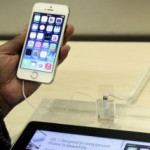 I’ve written a few pieces recently about the way information is treated in a typical interaction between a doctor and their patient. For instance, it’s commonplace for the doctor to have no idea what information the patient has consumed prior to the consultation, nor where they obtained that information from.
I’ve written a few pieces recently about the way information is treated in a typical interaction between a doctor and their patient. For instance, it’s commonplace for the doctor to have no idea what information the patient has consumed prior to the consultation, nor where they obtained that information from.
The reverse is also often the case, with few doctors opening up their notes to patients and their families to read, although this trend is slowly beginning to shift.
Of course, the information contained in a doctors notes should be pretty reliable, but a recent study suggests that not all information derived from a doctor is treated in a similar way. The study, conducted by researchers from Penn State, looked specifically at the information doctors share on Twitter, and how persuasive it was to readers.
The study produced a fascinating finding, with unique messages given the kind of credibility one might expect from a doctor, but a retweet of someone elses content by that same doctor given significantly less credibility.
“Our study results imply that people may perceive tweets and retweets differently depending on the source of the content,” the researchers say. “They do care about whether a message is originally created by someone or retweeted by someone, as well as whether the source is a professional and popular.”
The study suggests that three cues are used to test the reliability of a message:
- How popular is the source?
- How authoritative is the source?
- How original is the source?
The research used some fictitious Twitter accounts to test their theory. Some of these accounts were designed to look like an authentic doctor, whilst others were designed to appear as lay people. The two forms of account were given a variety of follower numbers to affect their perceived popularity.
When an original tweet was made from a doctor with a large following, the credibility of the message was at its highest. Interestingly however, credibility decreased when a doctor retweeted a message from another doctor, yet increased when a popular layperson retweeted the same message from the same doctor.
“In the social media universe, the number of followers that a layperson has seems to translate into trustworthiness,” they suggest. “While tweets are judged based on the expertise of the person tweeting them, retweets depend on the trustworthiness of the person forwarding the health messages.”
With Twitter increasingly being used, both by patients seeking health information, and professionals looking to promote healthy behaviours, this kind of research is a valuable aid in understanding the kind of messages that carry most weight.
I'm not sure I'd want my doctor tweeting anyway to be honest. I mean they'd have better things to do wouldn't they?
Not sure I agree. We have to remember that the job of the healthcare industry is to keep us healthy, not return us to health once we're sick. Things are distorted at the moment, and nowhere near enough is done to prevent illness rather than treat it.
Hmm, yes, fair point. I hadn't thought of it like that.